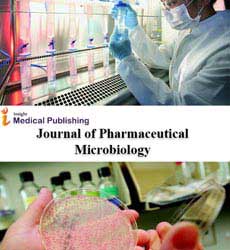Abstract
Natural products as Novel Therapeutic molecules against Alzheimerâ??s Disease
Alzheimer’s disease (AD) is considered the most devastating neurodegenerative disorder that affects more than 50 million people worldwide. AD
is a complex and multifactorial disease where endogenous and exogenous factors can be involved in the triggering of this illness, whose hallmark
is amyloid-β (Aβ), formed by cleavage of amyloid precursor protein by β- and γ-secretase. While there is no definitive cure for AD to date, drug
discovery based on nutraceutical molecules for prevention and treatment of AD is a growing topic. As well as helping to delay disease development,
natural products such as carotenoid and polyphenol compounds have demonstrated positive preventive efficacy.. We are focus on carotenoids
by their chemical structure and their neuroprotective activity against Aβ aggregation using molecular docking analysis. In our computational
analysis, lutein showed the most prevalent anti-amyloidogenic followed by cryptocapsin, astaxanthin, fucoxanthin, and the apocarotenoid bixin
where important interactions between carotenoids and Aβ via hydrogen bonding and van der Waals interactions were involved. Curcumin is
another interesting natural product that revealed to be a potential compound for treating of AD following different neuroprotective mechanisms,
such as inhibition of aggregation and decrease in brain inflammation. But, the low bioavailability, and susceptibility to degradation in biological
systems and poor solubility in plasma avoid converting this compound a medicine, but curcumin derivatives can be a potential alternative. We
synthesised new derivatives of curcumin in order to have strong anti-aggregation ability but also enhanced anti-inflammatory behaviour. One
curcumin derivatives exhibited a strong anti-aggregation effect higher than curcumin. Better bioactivity than difunctionalized compounds was
demonstrated by monofunctionalized curcumin derivatives. Analysis of molecular docking showed that carotenoids and curcumin derivatives
might adopt two pathways to inhibit Aβ aggregation: one by preventing fibril formation and the second by disruption Our studies thus illuminate
mechanistic insights on how carotenoids and curcumin derivatives can inhibit Aβ aggregation.
Author(s):
Johant Lakey-Beitia
Abstract | PDF
Share this

Awards Nomination
Google scholar citation report
Citations : 36
Journal of Pharmaceutical Microbiology received 36 citations as per google scholar report
Abstracted/Indexed in
- Google Scholar
- Secret Search Engine Labs
Open Access Journals
- Aquaculture & Veterinary Science
- Chemistry & Chemical Sciences
- Clinical Sciences
- Engineering
- General Science
- Genetics & Molecular Biology
- Health Care & Nursing
- Immunology & Microbiology
- Materials Science
- Mathematics & Physics
- Medical Sciences
- Neurology & Psychiatry
- Oncology & Cancer Science
- Pharmaceutical Sciences

